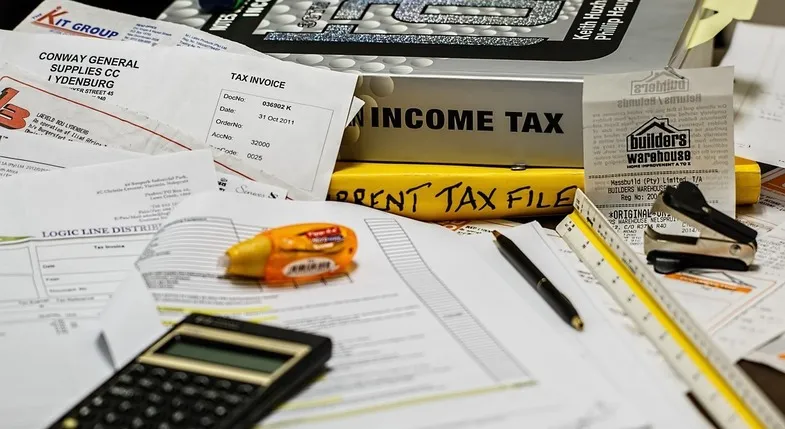
NOTE: With this article, Towel & Basin continues its celebration of Women’s History Month by serving and supporting, encouraging and empowering women who are making history today.
Since you have decided you want to work-at-home, why not claim your home office as a business expense? HOLD ON!
It is crucial to understand the requirements set forth by the U.S. Internal Revenue Service (IRS) to know if your home office qualifies for the home office deduction.
In the best-case scenario, you want to prepare yourself before you even start your home business so you can get qualify for every possible deduction.
But if you’ve already started your business, study the requirements for a home office deduction and see if your home office meets those requirements or if possible, make necessary changes in your home office set up so it does
What is the home office deduction?
The home office deduction allows U.S. taxpayers who work at home and maintain a home office to get a reduction in income taxes, as long as certain requirements are met.
Requirements to claim the home office deduction
Publication 587 from the IRS states that to qualify to deduct expenses for business use of your home, you must use part of your home:
- Exclusively and regularly as your principal place of business;
- Exclusively and regularly as a place where you meet or deal with patients, clients, or customers in the normal course of your trade or business;
- In the case of a separate structure which is not attached to your home, in connection with your trade or business;
- On a regular basis for certain storage use such as inventory or product samples;
- For rental use; or
- As a daycare facility.
When the IRS refers to exclusive use it means the only activities that should take place in the space should be those related to your business. You should only conduct work activities there. If the kids use the computer for gaming, you pay bills at your desk, or print family menus there, it doesn’t qualify.
Here is an example the IRS gives:
You are an attorney and use a den in your home to write legal briefs and prepare clients' tax returns. Your family also uses the den for recreation. The den is not used exclusively in your trade or business, so you cannot claim a deduction for the business use of the den.
There are two exceptions to this exclusive use test: 1. part of your home is used for storage of inventory or product samples; 2. part of your home is used as a daycare facility.
In addition, your home office should be used regularly for your home business. For the IRS, regular use means you must use a specific area of your home for business on a regular basis. Incidental or occasional business use is not regular use.
Let’s say you primarily work on a laptop in your car but your home office is your home base. But if you rarely actually use that home office, you likely won’t be able to qualify for the home office deduction.
Do you have more than one business location for your business? In order to deduct the expenses of your home office, your home must be your principal place of business.
For your home office to qualify as your principal place of business, the IRS says you must meet the following requirements:
- “You use it exclusively and regularly for administrative or management activities of your trade or business.
- You have no other fixed location where you conduct substantial administrative or management activities of your trade or business.”
What can you take?
When you qualify for the home office deduction, you can get tax deductions on the portion of your house that is used as a home office.
For example, if you use 200 square feet for your home office, and your home is 1,600 square feet, you can get credits for 8 percent of the utilities, property taxes and other expenses related to your home.
In addition to the home office deduction, you can claim regular business expenses. Keep all receipts for computer purchases, furniture purchases and any other purchases that are used for your business. These expenses may be deductible in addition to the home office. Consult with your accountant or tax advisor.
+++
If you work at home full time, it makes sense to take some time evaluating how to create an environment that qualifies for taking that home office deduction.
Sources
Publication 587, Business Use of Your Home (Including Use by Daycare Providers)
Image by CreationOffice from Pixabay
Tax Advice Disclaimer
The content in this article, including but not limited to text, graphics, images, and other material, is for informational or educational purposes only, and does not substitute for professional tax advice or consultations with a tax professional. Always seek the advice of your accountant or attorney with any questions you may have regarding a tax issue. Never disregard professional accounting or legal advice or delay seeking it because of something you have read on this site.